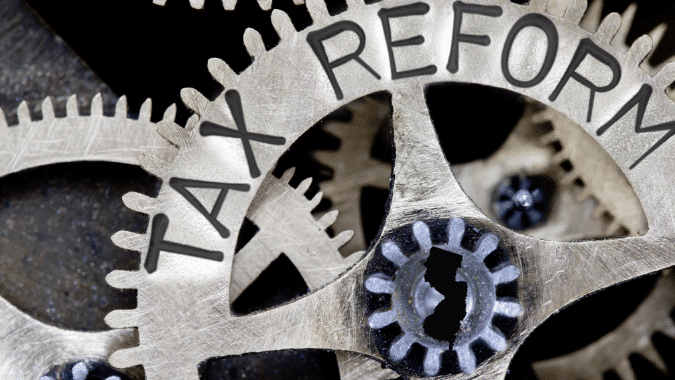On Thursday and Friday of this past week, a never-before-seen three-month appropriation bill, A-3 (Pintor Marin)/S-20 (Sarlo), passed both budget committees along party line votes with the Democrats in the majority supporting it and the minority party Republicans opposing it. The full Assembly and Senate are expected to pass the bill on Monday, sending it to the Governor for final approval.
The bill must be approved before June 30 to continue state government operations over the summer because the state extended the FY20 budget into a “fifth quarter” to help handle the uncertainty from COVID-19’s impact on our state revenues.
NJBIA is happy to see no borrowing or tax increases in this bill and the closeout of the FY 2020 budget, said Christopher Emigholz, NJBIA’s Vice President of Government Affairs, testifying before each budget committee. He offered a balanced perspective on the almost $8 billion spending plan covering state obligations in July, August and September.
“Some of the credit for that should go to Gov. Phil Murphy and the Legislature, who have worked to build up the state’s rainy day fund and budget surplus,” Emigholz said. “We are certainly in a ‘rainy day,’ and using those funds now makes sense to balance the budget. The Association is also supportive of the spending cuts included in this bill.”
Despite the positives of this plan, NJBIA is still concerned that the closeout of the FY 2020 budget relies too heavily on many artificial deferrals from the very end of FY 2020 to the very beginning of FY 2021. Despite some temporary savings from these manipulations that make this bill easier to pass, these deferrals will make the upcoming nine-month FY 2021 budget deliberations much more difficult.
Finding more cuts now for FY 2020, including structural reforms, could prevent some of these deferrals and bring us into FY 2021 in a better place to avoid excessive borrowing and the discussion of any tax increases. New Jersey businesses just can’t afford new taxes after already dealing with some of the highest taxes in the nation and being shut down for months.
NJBIA also believes that revenues may be stronger than originally anticipated, and if New Jersey moves more quickly to safely reopen its businesses, state revenues will be further improved.
“Focusing on actions that help the economy will help restore some of those lost revenues, while excessive borrowing and increased taxes will ensure that our businesses lag in their recovery from this pandemic,” Emigholz said.
Going forward into the FY 2021 budget deliberations, Emigholz sees four “buckets” of solutions to address this budget crisis: 1) federal aid for state budgets, 2) spending cuts including structural reforms, 3) borrowing, and 4) revenue-raisers.
“NJBIA believes focusing on buckets one and two will help our economy and taxpayers going forward, and we have been advocating as such,” Emigholz said, while options three and four can harm the very businesses that need help in recovering from this pandemic. The third bucket of borrowing may have a place in our fiscal solutions, but it should be limited to avoid unnecessary spikes in debt service that we cannot afford in future budgets. Hopefully new taxes are not on the table, and they are not necessary if we appropriately take advantage of the first three options, he said.
The association looks forward to working with the Legislature and Governor on the FY 2021 State Budget over the summer, and we hope that a balanced solution will emerge keeping in mind the significant pain that the business community was already mandated to endure, he said.



No new or increased taxes please!!!
Thank you.
Buckets 3 & 4 should be discarded if there’s any interest in avoiding the state’s credit rating falling into junk bond territory. Bankrupt corporations borrow on future revenues. Corporations anticipating a path forward understand spending cuts & biting the bullet comes first, if its financial life is going to be rejuvenated.